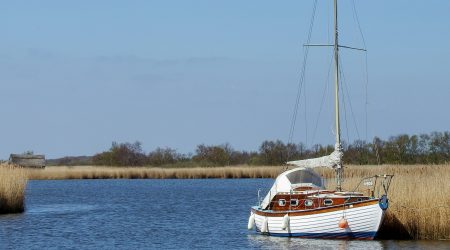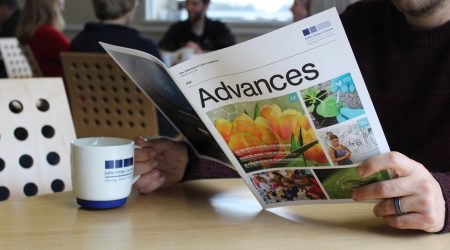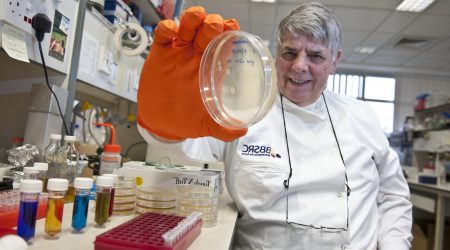In 2016, the John Innes Centre was one of 23 UK institutes to be awarded funding through the BBSRC for an ‘Impact Acceleration Accounts’ to ‘facilitate knowledge exchange and enable innovation in an international development context’
Deepening international partnerships
Germplasm workshop with CIMMYT in Mexico to explore new areas of future collaboration
The workshop was focussed on the germplasm collections with a view to learning from best practice at CIMMYT (Centro Internacional de Mejoramiento de Maíz y Trigo), identifying appropriate improvements at the John Innes Centre and exploring opportunities for working together in the future.
Six people spent three days at the CIMMYT Head Office in El Batan, Mexico, with a full programme of presentations, meetings and tours of the facilities.
Alliance for Accelerated Crop Improvement in Africa (ACACIA)
ACACIA was launched in June 2017, and will dramatically increase the range of partnerships between the BecA-ILRI Hub (Biosciences eastern and central Africa-International Livestock Research Institute), the John Innes Centre and the wider UK and African crop research communities).
ACACIA is an interdisciplinary partnership supporting African scientists to find solutions to local food security challenges and by directly promoting research, biotechnologies and engagement.
Building research capacity
Golden Gate training workshop
A workshop in March 2017 at the University of Ghana’s Biotechnology Centre brought together scientists at various career stages from four countries for training in the use of ‘Golden Gate’ synthetic biology assembly techniques.
The three-day programme, organised by the West Africa Centre for Crop Improvement (WACCI), in partnership with John Innes Centre, comprised lectures, lab work and Golden Gate exercises.
Improve understanding of international development challenges
Meeting of Agricultural Scientist Support & Exchange Team (ASSET) in London
ASSET aims to increase effectiveness of agricultural scientists in the UK and sub-Saharan Africa by forming lasting collaborative partnerships.
The programme pairs students from the two regions and supports them in their professional development through a peer-based network centred on peer-review exchange.
A year after the inaugural meeting in Kigali, Rwanda, the 16-person team, representing 12 nationalities met in London to share learning stories from a year of research and events, and develop tailored networking strategies to achieve specific goals for the coming year
Broadening international partnerships
Soft skills workshops
A four-day workshop hosted at the Punjab Agricultural University (PAU), India, aimed to coach early career scientists in science communication skills.
The workshop brought together an array of international participants for a series of lectures and practical hands-on exercises covering important skills such as spoken and written scientific presentation skills, improving online presence, CV and fellowship applications and practical job interview experience.
Promote development of interdisciplinary consortia
Theory of Change workshop
The Theory of Change workshop was set up to develop new consortia between UK and African scientists, to develop shared objectives for agricultural research for development and to build a programme-level Theory of Change to inform the content of future projects.
The workshop, which was held at the BecA-ILRI Hub in Kenya, was facilitated by the Agricultural Learning and Impacts Network (ALINe), part of Firetail Ltd.





